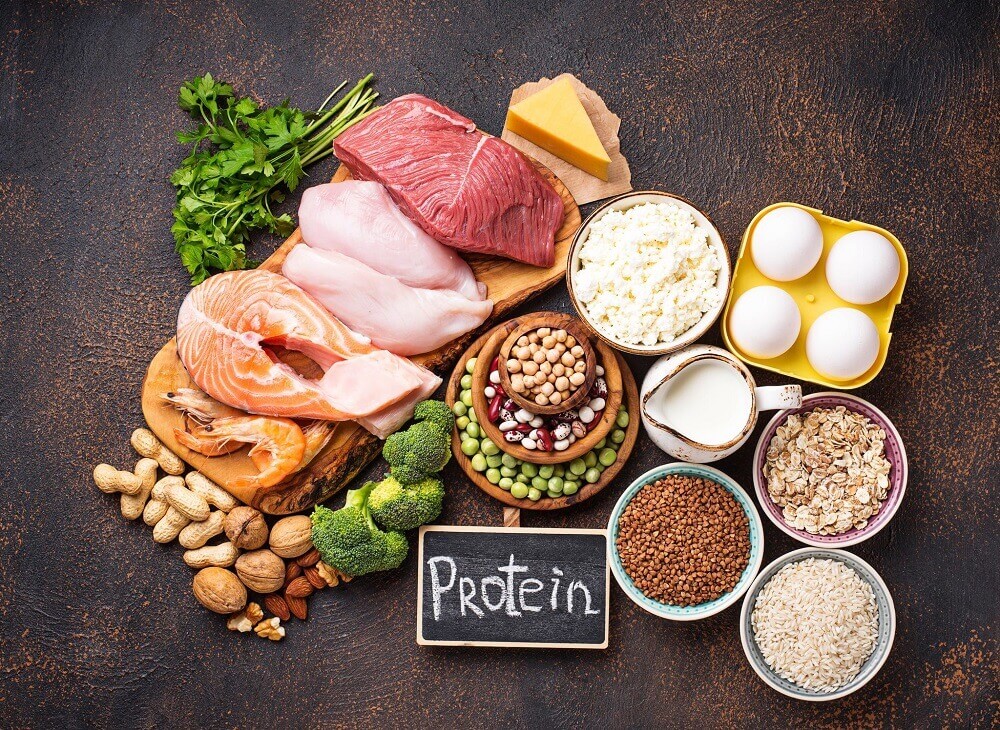When we think about protein, eggs come to mind. But why settle for just eggs when you have a world of high protein foods waiting to be explored?
If you want a healthy lifestyle and a well-balanced diet, high-protein foods are the secret. Proteins are the building blocks of life, essential for the growth, repair, and maintenance of your body tissues.
While eggs are a well-known source of protein, there are many other foods that not only match but surpass the protein content found in eggs.
Let’s explore a diverse range of high protein foods, discuss the benefits, and provide insights into how to add them to your daily meals.
Table of Contents
10 Protein-Rich Foods and Their Benefits
Here is a list of the best high protein foods and their benefits:
Oatmeal
Starting our protein-packed journey with a breakfast favorite, oatmeal.
While commonly associated with carbohydrates, oatmeal also provides a decent amount of protein. A one-cup serving can contribute around 6 grams of protein.
The fiber content in oatmeal makes it an excellent choice for a sustained release of energy, keeping you full and satisfied throughout the morning.
Cheese
Cheese, a versatile and delicious source of protein, is packed with essential nutrients like calcium and phosphorus.
A single ounce of cheese can contain approximately 7 grams of protein. Add cheese into salads, and sandwiches, or enjoy it as a snack for a tasty protein boost.
Chicken
When it comes to lean meats, chicken takes the spotlight.
Skinless, boneless chicken breast is an excellent source of high-quality protein, offering around 31 grams per 100 grams.
Grilled, baked, or sautéed, chicken is a versatile option that you can add to many dishes.
Black Beans
Vegetarians rejoice! Black beans are a plant-based protein powerhouse, delivering approximately 15 grams of protein per cup.
Not only are they rich in protein, but they also provide a healthy dose of fiber, aiding digestion and promoting a feeling of fullness.
Read how to use a calorie calculator.
Yogurt
Yogurt is not just a tasty treat; it’s also a fantastic source of protein.
A standard cup of Greek yogurt can contain up to 23 grams of protein. Additionally, yogurt contains probiotics that support gut health, making it a wholesome choice for your daily diet.
Lentils
Lentils are a vegetarian’s dream, offering a hefty amount of protein along with essential vitamins and minerals.
A cup of cooked lentils can contribute about 18 grams of protein. Their versatility allows you to include them in soups, stews, salads, or as a side dish.
Milk
A classic source of protein, milk contains both whey and casein proteins, making it an ideal post-workout drink.
A single cup of milk provides around 8 grams of protein, with a rich supply of calcium for strong bones.
Quinoa
Quinoa is a complete protein, meaning it contains all nine essential amino acids.
A cup of cooked quinoa can provide approximately 8 grams of protein. This ancient grain is not only nutritious but also gluten-free, making it an excellent choice for those with dietary restrictions.
Chickpeas
Another plant-based protein superstar, chickpeas, also known as garbanzo beans, offer around 15 grams of protein per cup.
Whether roasted as a snack, blended into hummus, or tossed in salads, chickpeas are a versatile and tasty way to meet your protein needs.
Salmon
Fatty fish like salmon are not only rich in omega-3 fatty acids but also pack a protein punch.
A 3-ounce serving of salmon can contribute approximately 22 grams of protein. Grilled, baked, or poached, salmon is a delicious and nutritious addition to your high-protein repertoire.
Nutritionist Recommendation: Ms. Rebecca Tariq is one of the best nutritionists in Lahore. She has an experience of fourteen years and can effectively provide you the best nutrition advice. If you want to get a consultation on adding protein to your diet, just ask her.
How Much Protein Do You Need?
The amount of protein a person needs can vary based on factors such as age, gender, weight, and activity level.
As a general guideline, the recommended dietary allowance for protein is 0.8 grams per kilogram of body weight. However, for individuals engaged in regular physical activity or aiming for muscle growth, protein needs may be higher.
Athletes and those involved in intense physical training may require between 1.2 to 2.2 grams of protein per kilogram of body weight.
Note: you should consult a qualified nutritionist to determine the appropriate protein intake based on your health goals and needs.
